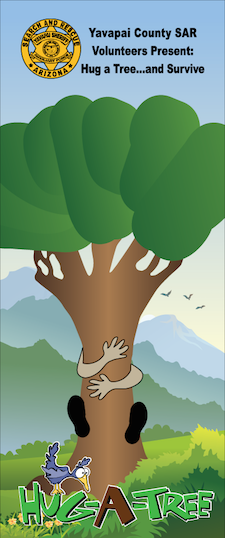Electronic Signaling
Be SMART about using:
- Personal Locator Beacon (PLB)
- Satellite Emergency Notification Device (SEND) e.g. “Spot”
- Cell phone during backcountry or wilderness travel.
- If you answer “No!’ to “Would I go there without my PLB, “SEND” or cell phone?” then don’t go there with it!
- Would you normally do something that might fracture your pelvis, freeze your hands or feet, kill you by heat stroke, suffocate you under snow, drown you or get you lost for days? If you answer “NO” – then don’t do it relying on a signaling device!
-
Don’t think “It won’t happen to me – that happens to someone else.” Backcountry and wilderness travelers must know how to:
- Prepare
- Recognize
- Prevent an emergency
- Always use these devices for the unforeseen – not as a last resort tool to handle what should be foreseen. It is dangerous and irresponsible to think they “allow” going somewhere or doing something you are not prepared or experienced to do.
- Carrying an electronic signaling device does not make you safe. No distress beacon or cell phone offers warmth, shelter or first aid. They only make it easier to summon emergency help – after you are injured, lost – or worse. And once rescuers have been notified, weather and terrain conditions may prevent or delay them from reaching or even finding you.
- When you activate any emergency signaling device, a full-scale emergency response will begin using local, state and / or national emergency agencies. It is only appropriate when a true emergency exists.
- PLBs and SENDs are useful devices that save lives. You should think ahead about when to use one responsibly.
“SEND” – A distress signal transmitter that uses satellites for communication, other than a PLB (Personal Locator Beacon, for individuals), ELT (Emergency Locator Transmitter, for aircraft) or EPIRB (Emergency Position Indicating Radio Beacon, for boats).
Founded in 1972, the National Association for Search and Rescue comprises more than 9,000 volunteer and paid search and rescue professionals who work at the local, state and national level in land, aviation and water SAR. NASAR conducts hundreds of training courses and thousands of certification exams each year. More than 13,000 people hold any of 9 NASAR certifications in SAR operations.
The National Association for Search and Rescue
P.O. Box 232020
Centreville, VA 20120
(Washington, DC)
www.nasar.org
(877) 893-0702
PLB-SEND Recommendations NASAR Document
PLB-SEND Recommendations NASAR.doc 1/2009






































